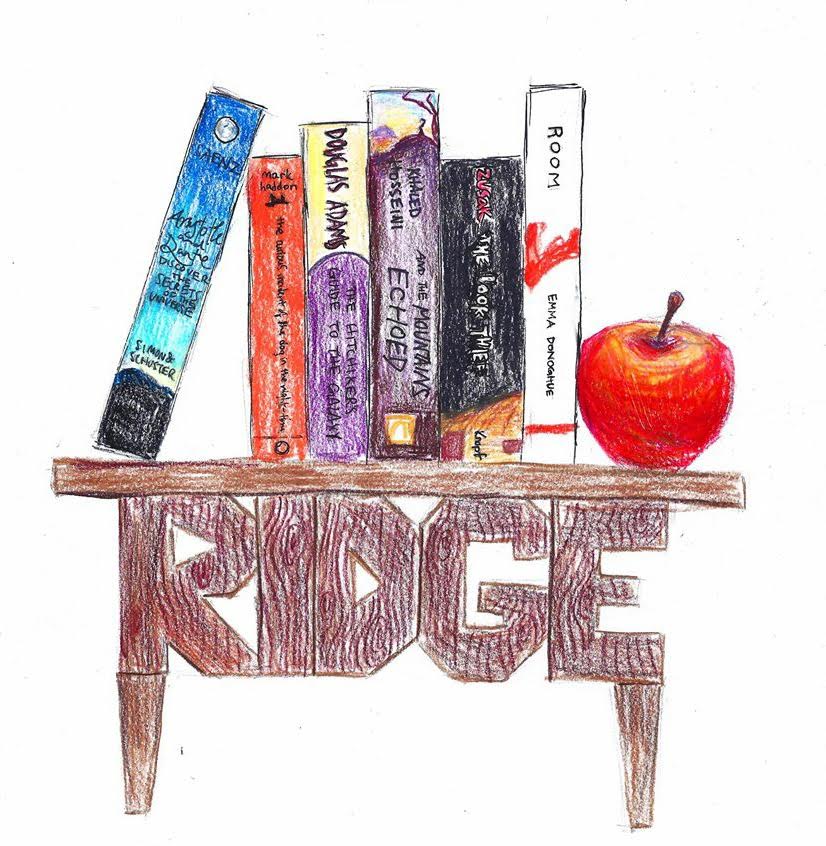The Death of Reading for Fun
February 22, 2016
If you ask kids at Ridge High School what the last book they read was, the likely responses are “I don’t read,” “Some school book,” or “I don’t remember.”
I originally thought that the lack of voluntary reading traced back to the elementary school mockery of the kids who went through books during reading time faster than they could get back to the library twice a week (I was one of those kids, and got stuck reading the class copies of Goosebumps over and over.). It seems to make sense that this bullying at a young age would create kids who didn’t want to read, whether it was out of fear for their social status or merely an underdeveloped drive to read while young.
Now that I’m getting older, and I know that I was one of those kids who read endlessly and wasn’t really made fun of for it, I know that it’s not the mockery that’s the problem.
I can’t recall exactly when the retraction from reading began. Everyone read their chapter books in abundance in second grade – before the set curriculum really came about – but almost no one read by fifth grade. It seemed at the time – and still does – that the implementation of required reading and comprehension tasks killed the joyful childhood buzz that came with pleasure reading. Growing up and being faced with the classics (which I read both voluntarily and not-so-voluntarily), it’s come to my attention that reading comprehension skills are a requirement for deeper knowledge and understanding as life goes on.
Around third grade, our school curriculum assigned books that classes had to read. By fourth grade, we had to write journal entries about the books we read, reflecting on important themes, ideas, or quotes. Even back then, I hated doing it, and my teacher knew it. She called me out every time for only summarizing and not “comprehending.” The truth was that I always did understand the subtle nuances and tone that my teacher was looking for me to write about; the only problem was that I hadn’t been taught to accurately write those thoughts down, and I didn’t understand the importance of it. Fourth-grade me thought it was a waste of time to write down journal entries just to prove I knew what I knew I knew.
One thing I do remember, vividly, is the shocking nature of the books we read in fifth grade. Having just hit my double digits, having a very naive perspective of history and the world, and having little knowledge to place it in context, we read books dealing with bullying, the Holocaust and other important themes or events. While crucially important to understand, reading about these topics without having a discussion or a base of knowledge beforehand can leave kids confused and scared.
I know for a fact that I didn’t understand the Holocaust when I read Number the Stars by Lois Lowry (which, reading it now, is an incredibly well-written book), and I ended up concerned because of my German ancestry and scared that those events would happen again. Without context, the meaning of the book vanished, and it left me with worried thoughts and confused narratives about historical events.
The point of all this reminiscing is this: What if kids aren’t the problem? What if book choices aren’t the problem, either? What if the problem is the context in which kids are being given the books, and the discussions (or lack thereof) surrounding them?
Hear me out. Given a conversation on the history of the Holocaust at its most basic, reading Number the Stars would have had context. A discussion afterwards would focus on the emotion and characters, rather than the tone or theme or technicality of the work. While literary analysis is an incredibly important life skill, it is one that must be developed over time. In order for it to become a developed skill, students have to be willing to read. By starting discussions in elementary school with an understanding of the point of books themselves, focusing on the emotions and the stories – rather than breaking the book into pieces in the analytic manner that is so often employed – will teach kids why reading is important and keep them on the path long enough for them to naturally develop a deeper curiosity for analysis and understanding.


Liz McDonnell • Feb 29, 2016 at 11:17 am
I agree with the author that the number of people who read has decreased but people do still read. Whether you read or not doesn’t depend on if you were bullied when reading or seen with a book it depends on how you put certain goals in life ahead of others. If you read a lot and enjoy it then people should let you read and not look down upon you. But also don’t spend all your time reading or else you can’t live your life.